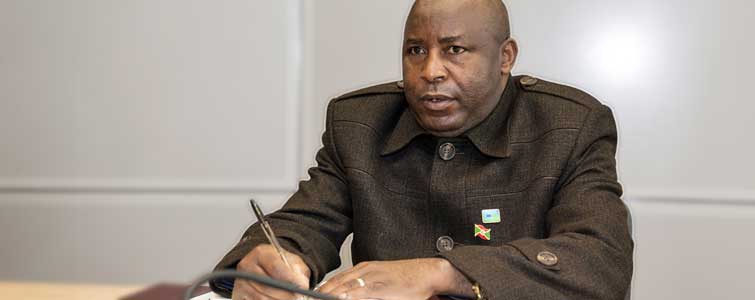
‘It is better to take [homosexuals] to a stadium and stone them’ because ‘that’s what they deserve.’
In an escalating climate of hostility towards the LGBTQ+ community in East Africa, Burundian President Évariste Ndayishimiye ignited further controversy with inflammatory remarks during a press conference on December 29, describing homosexuality as imported from the West.
“If you want to attract a curse to the country, accept homosexuality,” he said, according to France 24. “I even think that these people, if we find them in Burundi, it is better to lead them to a stadium and stone them.”
The response was immediate and disturbing. An anonymous LGBT activist in Burundi reported that social media was flooded with a thousand comments from the president’s supporters, containing threats and calls for violence, some even more brutal than Ndayishimiye’s original statements, according to Human Rights Watch.
Several days later, the Burundian ambassador to Belgium said that the president’s remarks had been “misinterpreted.” While the United States and the European Union urged Burundi’s government to respect the rights of all citizens, they refrained from explicitly labeling the comments as homophobic.
This type of fearmongering is not unfamiliar in Burundi, where same-sex relationships have been illegal since the introduction of a new criminal code in 2009 under former President Pierre Nkurunziza. The anti-homosexuality provision was hastily added by the National Assembly’s human rights commission, allegedly under pressure from Nkurunziza, who publicly condemned homosexuality as a “curse” and sought to influence lawmakers through phone calls and televised statements.
The crackdown on LGBT rights, echoing across the region, is exacerbated by East Africa’s broader human rights crisis, characterized by ongoing political repression and restrictions on freedom of expression to maintain the ruling party’s control. Despite presenting himself as a progressive and rights-respecting leader, Ndayishimiye’s recent comments fuel concerns that he is contributing to the escalation of fear and hatred rather than working towards reversing the troubling trend.
Uganda, 60 miles to the north of Burundi, passed a law last May that carries the death sentence for specific categories of same-sex offenses and lengthy jail sentences for others — a move that Western governments and human rights activists widely condemned.
Burundi is one of the world’s poorest nations, with 11.2 million residents and a life expectancy of 62 years. It is struggling to emerge from a 12-year, ethnic-based civil war.



